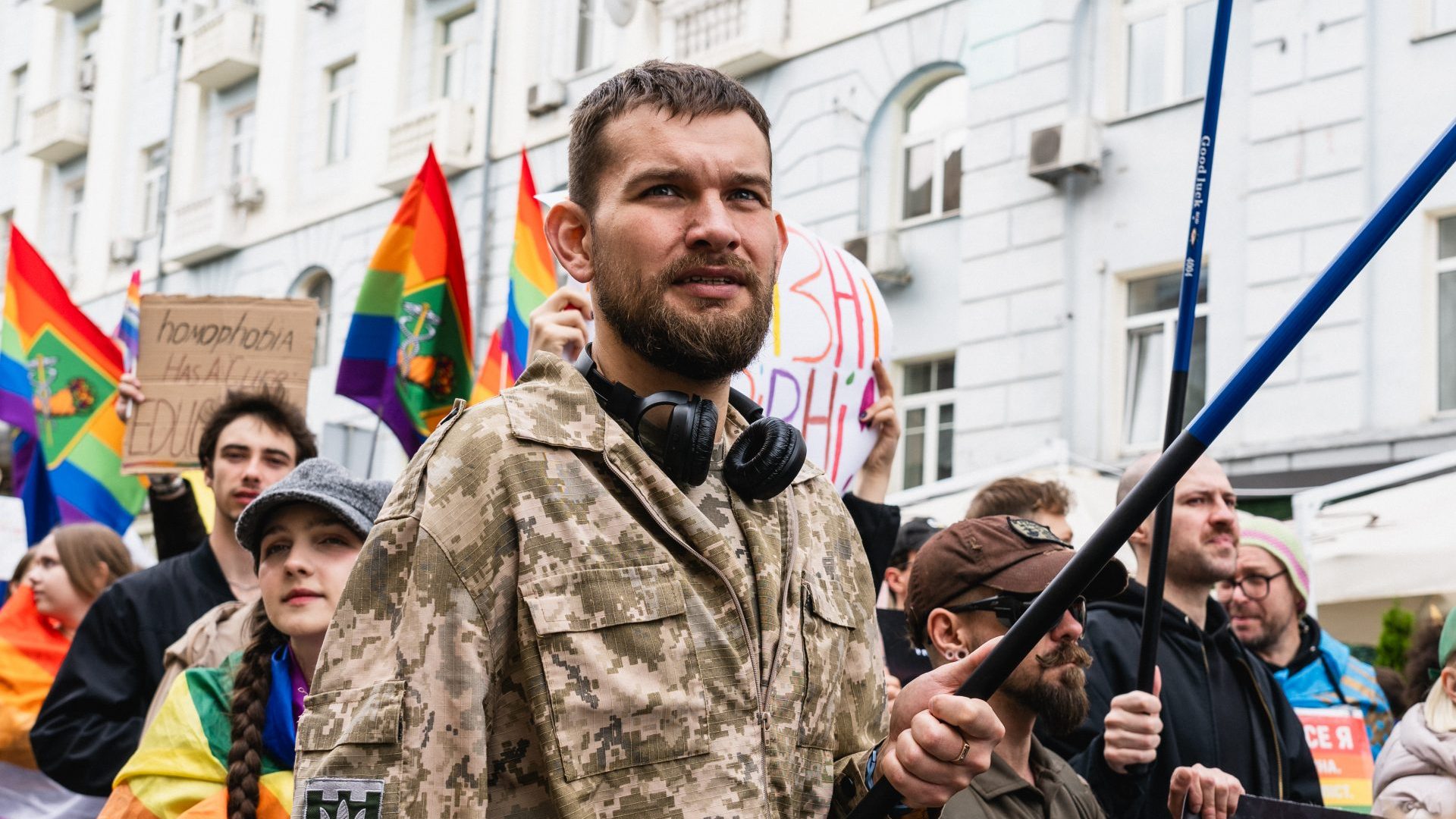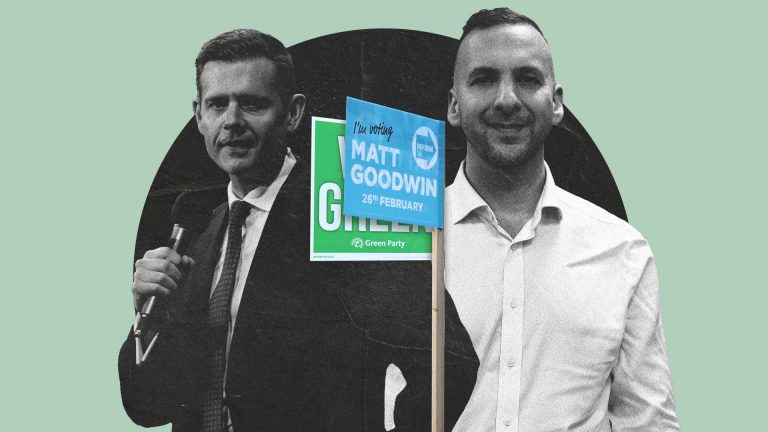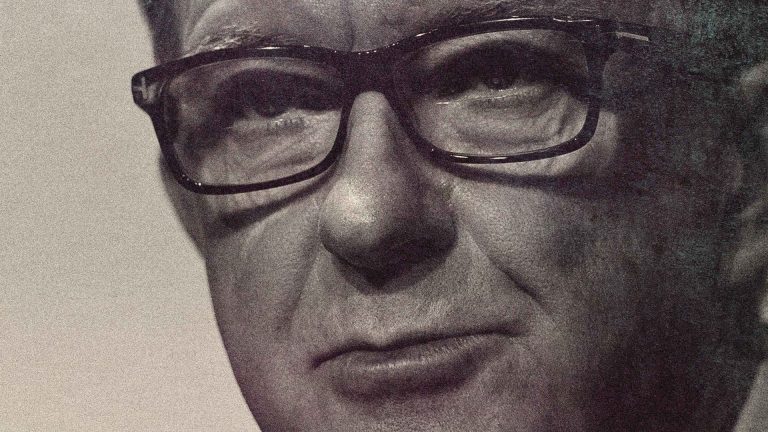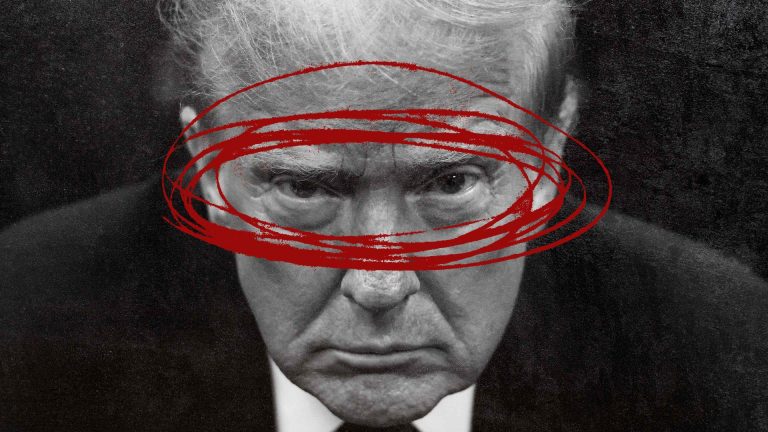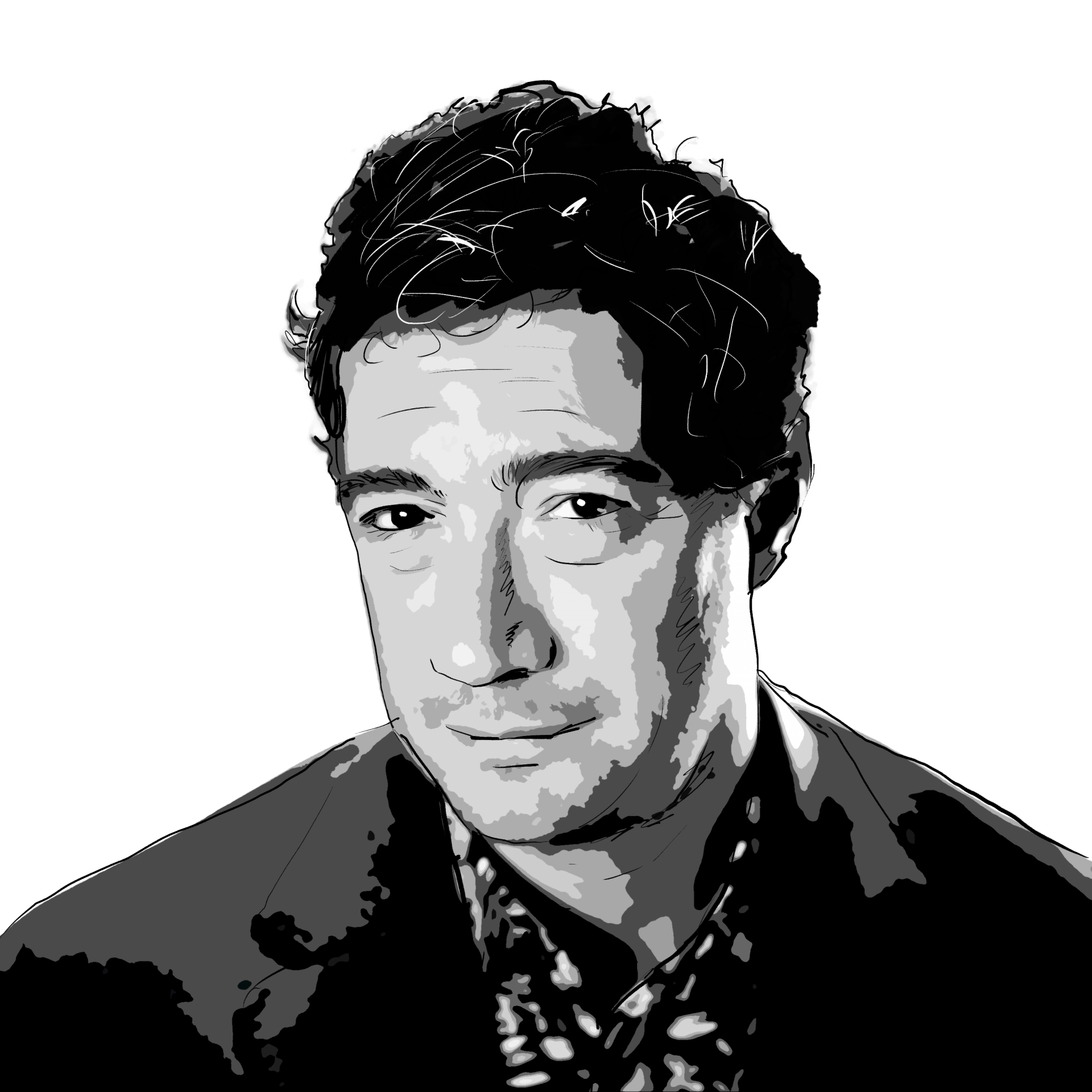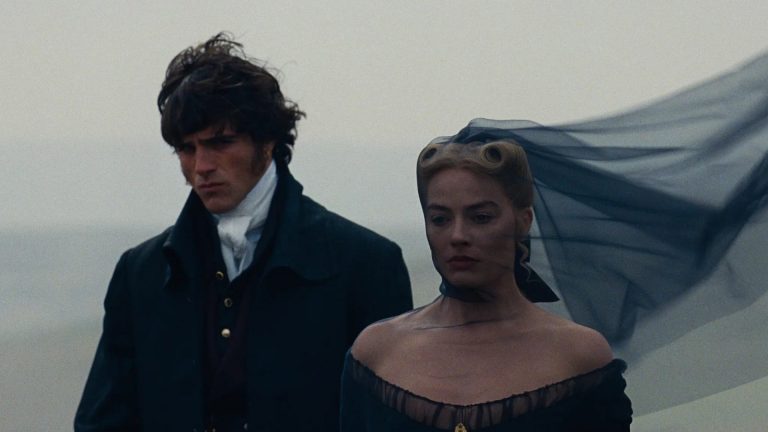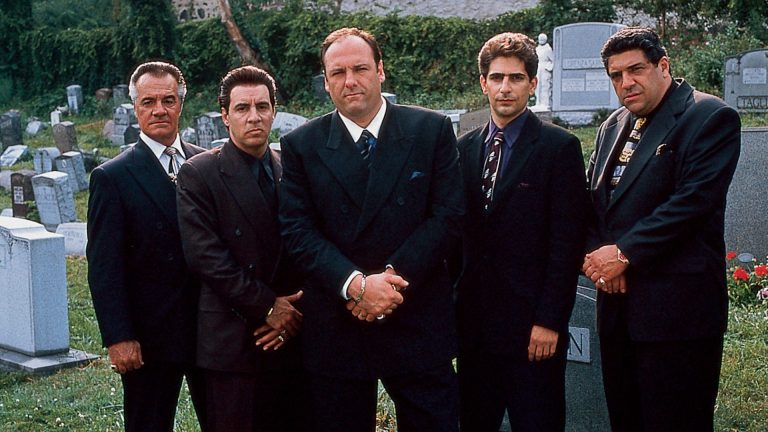A sea of blue and yellow colours nearly every corner of Kyiv, from posters and banners asking for donations to the armed forces to a sprawling memorial to the dead on Maidan Nezalezhnosti.
On 14th June, the usual display of patriotic colours was complemented by an even more vibrant palette as a crowd of 1,500 demonstrators draped in rainbow flags took to the streets to parade for equal rights for Ukraine’s LGBTQ+ community. It was no typical Pride parade.
Only the second march to receive official approval since the full-scale invasion of Ukraine in 2022, due to security concerns, it was capped at 30 minutes and routed between two bomb shelters in case of missile attacks. Paradegoers paired vivid feather boas and fluttering rainbow flags with the muted tones of Ukraine’s camouflage fatigues. Among them were active service members and veterans marching to demand equal rights for LGBT+ soldiers and to raise funds for FPV drones.
This may appear to be an unexpected convergence. But just as war has pervaded every aspect of life here, it has spurred an urgent campaign effort for equal rights for Ukraine’s queer community, many of whom now serve on the front lines.
At the front of the Pride march was a banner reading “we fight for all – equal rights for all!”. It was held by representatives from LGBT Military for Equal Rights. Founded by Viktor Pylypenko, the first openly gay soldier in the Ukrainian army and a prominent activist, the non-profit group advocates for the tens of thousands of queer people serving in the Ukrainian military.
Pylypenko and the NGO have done much to raise the profile of LGBTQ+ servicepeople, but war has laid certain inequalities bare. As gay marriage is still illegal in Ukraine, soldiers in same-sex relationships do not have the same rights as their heterosexual peers. Partners of LGBTQ+ soldiers lack the legal standing to make critical health decisions for their loved ones, obtain information about their partner’s status if they are injured, taken captive or killed, or – in the event of their death – decide what happens to their partner’s remains and claim the state support they are owed.
Surveys suggest that there is an increasing appetite for these inequalities to be remedied. A poll from 2024 found that more than 70% of Ukrainians believe that LGBTQ+ people should have the same rights as other citizens, a stark rise from before the full-scale war.
The government has been slow to keep pace with increasingly positive public attitudes. In March 2023, a Ukrainian lawmaker introduced a draft bill to legalise same-sex civil partnerships in Ukraine, but the bill remains stalled due to pressure from church leaders.
Bohdan Zhuk, an activist and the director of Ukraine’s Sunny Bunny LGBTQ+ film festival, says that war has helped to solidify popular support for the country’s queer community. “From my experience, it seems like the full-scale invasion has clearly shown who the common enemy is. It’s not queer people killing Ukrainians, it’s Russians. We have a common goal, to defeat Russia, to survive in this war,” Zhuk told me over a coffee in Kyiv’s hipster district, Podil.
We sat around 100 metres from the Zhovten cinema, where Sunny Bunny was held in April. The festival programme featured international and Ukrainian queer films, opening with a documentary about three drag queens contending with the outbreak of war.
Under the hot springtime sun, the festival attracted enthusiastic young Ukrainians in droves, who lounged in the park laughing and chattering between screenings. Despite disruption from Russian air attacks, the mood was joyful.
But not everybody had come for the films. The Zhovten cinema had to be encircled by police for the duration of Sunny Bunny’s week-long run after it was stormed by a fringe group of far-right protesters from the group Prava Molod (The Right Youth).
Suggested Reading
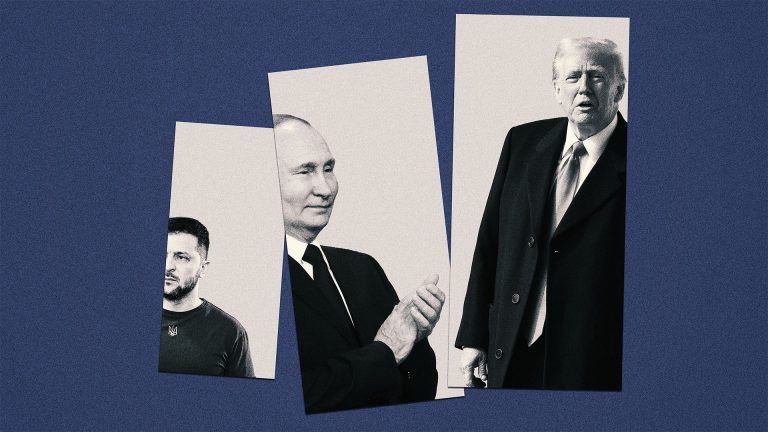
Ukraine’s defiance is rarer than minerals
Zhuk was keen to emphasise that this group constitutes a narrow, vocal minority, but said that they should nonetheless not be underestimated.
“With the conditions of martial law and the war, our lives and our rights are more threatened, and this especially concerns the rights of those who are not equal in some way, of stereotyped and marginalised groups,” Zhuk said.
This is a sentiment echoed across Ukraine’s NGO sphere, where many feel more needs to be done to safeguard groups vulnerable to discrimination.
Taya Gerasimova of Insight NGO, which supports women and LGBTQ+ people, said that war has dramatically escalated incidents of domestic and sexual violence and gender-based harassment, including against women soldiers.
“In the military, nothing is built for women,” Gerasimova told me. “Although women in the military are very visible, people still don’t perceive them as veterans.”
Women make up around 20% of the Ukrainian military, but they can face intolerance and stigma from wider society. When they come home, rehabilitation is often oriented around men’s needs and fails to account for women’s experiences.
Insight’s research has found that women soldiers who experience sexual violence whilst fighting have no recourse to specialised therapeutic support and can feel abandoned by the country they risked their lives to defend.
“The state is doing almost nothing about that, they leave it to NGOs,” Gerasimova told me. Insight organises retreats for returning female soldiers and sends resources to women serving on the front line.
The general mood is that although attitudes may be improving towards marginalised groups, it has been up to an overstretched community of NGOs and activists to support and protect them.
Many see the struggle for LGBTQ+ and women’s rights as a key frontier in the war against Russia, which the Kremlin has framed as a bastion of “traditional” values with increasing ferocity in recent years, cracking down heavily on feminist and pro-LGBTQ+ movements.
The manifesto of 2025’s Kyiv Pride stated that “hatred towards your own citizens, their rights, and their diversity is a primitive trait of Russian and other totalitarian societies.” Ukraine’s openness, by contrast, is seen as a statement of resistance, independence and alignment with the democratic West.
The uncertainties of war add a grim urgency to the fight for equal rights. “Any day could be our last, so we don’t want to put it off, we want to express ourselves and have the right to feel what we feel,” said Zhuk.

